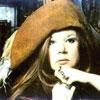Au Reservoir
Once I do, of course, I'm back. With an announcement of a new self-published series, which I've mentioned in these posts, hopefully tantalizing enough that you people will want to buy it online. Self-publishing is about control, it's about royalties (more for me, less for undeserving publishers), it's about editors loving it but idiotically wondering what table it might go on at Barnes & Noble. This way, it goes on a new website with a click-through to Amazon and B&N. No tables necessary.
I will leave you with a little snippet to tide you over, from the first book...more to come when I get back. The book is called "Ungrateful Dead: Murder at the Fillmore." (Sorry about the paragraphs, I don't know how to make them in blogs.)
Prologue
Tam Linn, lead singer of the rock group Deadly Lampshade, has a beautiful rich tenor voice, for which he writes songs that show it off to best advantage—a practice which is not always, or even often, to the best advantage of the rest of his band.
He also has a gift for gorgeously singable melody lines that make great hooks for hit singles—but only if he sings them. He is an inventive guitar player—but only in the service of his own songs. Even in this time and place of amazing hair—Haight-Ashbury, San Francisco, 1966—he has some of the best around, thick, dark, straight, shoulder-length; and he isn’t above tossing it around like a Civil War whore to pull in chicks.
He is well aware of all of this, and aware also that it doesn’t exactly endear him to a whole lot of people. Especially not to the people that know him best and have to work with him most closely. And he doesn’t particularly care.
It hardly seems to matter. Under their British manager’s tutelage and Tam’s selfish though effective leadership, within a year the Lampshade have evolved from a sloppy Oakland bar band to a hard-playing, brilliantly creative, psychedelic outfit. But in the process of becoming stars, they have lost—some say cynically tossed overboard— much of the political and spiritual consciousness that had been their original stock in trade.
Well, when it comes right down to it, they’re not the only Bay Area rock group to have done the same in the service of their music, steering clear of at least the most overtly political stuff—though nobody is entirely apolitical, in the sense that politics doesn’t deeply affect their music and their persona, their way of being in the world.
Because you can’t be, not in this time and place; it isn’t possible to think and feel and stand apart. Politics is part of the scene, part of what makes the music move and live and thrive—it was from the very first, and it will be until the very last.
Likewise the drugs. Nothing nasty, or not that often anyway, not till later: just pot and acid and mescaline and psilocybin; speed is the worst of it. The reign of terror that heroin and powder cocaine would bring about is still a few years off; if they are used—and they are, even now—they are used in secret, and junkies and speed freaks and cokeheads are looked down on in the drug hierarchy.
Whether the drugs make the music or the music makes the drugs is one of those headachey questions like can God create a rock so big he can’t lift it, or if a really bad band plays suckily in a forest with nobody there to hear them do they still make a sound, and if they do is that sound still sucky or is it just a sound.
Though on further reflection maybe it is the drugs that make questions like that.
But Tam is by far the most enthusiastic substance fan among the Lampshade’s personnel; he can blow a kilo of grass in a few days, a gram of coke in a few whale-sized snorts, a whole blotterful of acid, thousands and thousands of mikes of Owsley’s finest, in a week.
And that’s only what people actually see him do: there are tales of much harder stuff, and even not-so-veiled whispers of him dealing that harder stuff on a professional scale, not just those amiable transactions among friends that are on a par with asking someone to pick up a quart of milk for you at the grocery store next time they go to buy milk for themselves. But no one knows for sure.
Strangely enough, the drugs don’t affect Tam’s creative work in the slightest, which almost seems to be missing the point. His output is brilliant, and his voice is amazing, and even drugs can’t improve much on that—or, if you take the other view, can’t hurt it much either.
But one point nobody missed about Tam is that he has pissed off pretty much everyone he ever came into contact with. The only reason most people put up with him at all is because he’s so freakin’ talented, and of course he’s a rock star, and also of course he’s so very very cute. Apart from that, though, Tam Linn, born Tommy Linetti, is a terminal pain in the behind.
So when he is found pretty darn terminal indeed backstage in the Fillmore Auditorium dressing room one spring afternoon, stuffed into one of his band’s amp cases a couple of hours before the Lamps are to headline there, not even his own band is particularly sorry about it. Shocked, yes; annoyed, yes; pissed off that even in death he’s managed to find a way to inconvenience them and screw them over once again, yes yes yes.
But grief-stricken? No. You couldn’t say that about them. You couldn’t say that at all.

